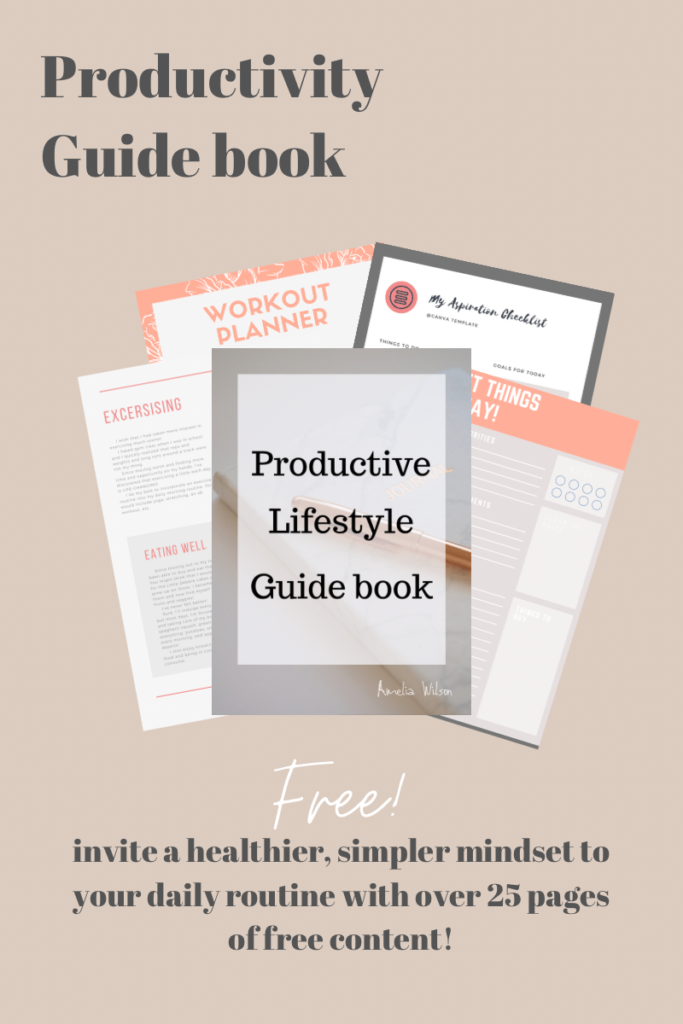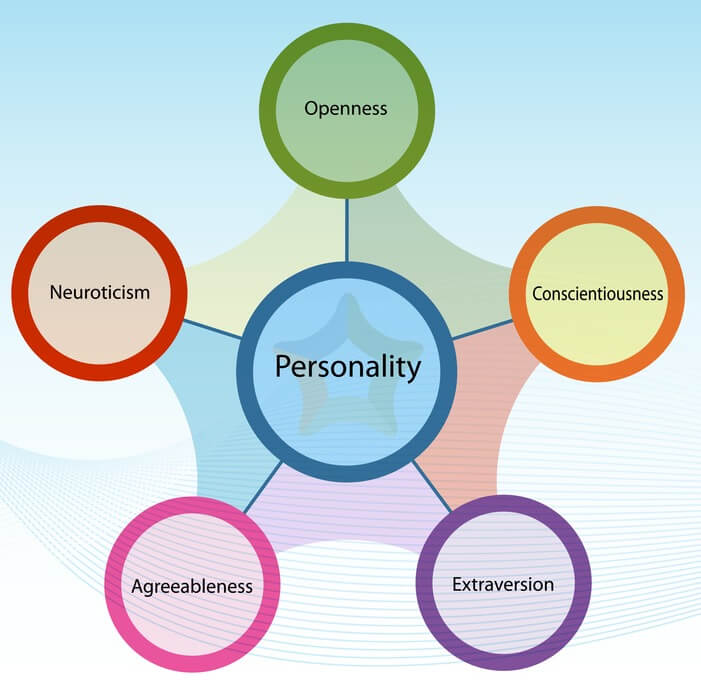Recently I created a short video on youtube in regards to self-discipline. While the video was quick and sort of sprung up out of nowhere, I came across several revelations about the topic that I wanted to share here.
Disclaimer: All of the views and opinions in this post are solely my own and are not sponsored. This post may include affiliate links, meaning I earn a commission through links at no cost to you.

Before we get into this topic, I did want to put out a quick disclaimer that I am not a professional or expert in this field. Self-discipline is a simple topic I feel comfortable discussing, but as you will see later in this post, mental illness can hinder progress in this area. I am not an expert on mental illnesses or psychology, but I did want to share some personal opinions on the topic.
That said, there are a few things we need to discuss first before we hop into the meat of the article.
Stigmas around self-discipline
There are several stigmas around the word “discipline.” When people think of the word “discipline,” they think of a parent, guardian, or authority figure enacting some sort of punishment for your behavior.
While the term does represent those scenarios, self-discipline is not necessarily about punishing yourself. People avoid learning about self-discipline because nobody likes the idea of punishing themselves or bringing about pain. We avoid negative feelings of disappointment and shame as a form of self-preservation. Once we attribute self-discipline to being in a similar group of words that share these negative meanings, we do our best to high-tail it out of there.
Additionally, people assume that if they are prone to procrastination, get sidetracked easily, or are unable to stick with their goals, they simply lack self-discipline and will never be “good.”
Like reading, juggling, playing an instrument, or writing in calligraphy, self-discipline is a skill that can be learned and honed. Sure, some people will catch on quicker than others, but in and of itself, self-discipline is a trait that you build for yourself.
Why you need self-discipline
Since self-discipline comes with many negative connotations for most people, it may be best to offer reasons you should curate more self-discipline into your life.
Self-discipline helps you to:
- Build motivation to hop on passion projects
- Encourages self-awareness and reflection
- Prevents procrastination
- It helps you navigate your goals and dreams.
- And creates a new sense of organization and productivity.
Self-discipline is not a bad thing. Moreover, it has next to nothing to do with discipline at all. There is no punishment—at least not one given to you by yourself. And self-discipline is more about creating an efficient mindset than it is about getting stuff done.
When does self-discipline matter
As I recorded my video, I came to an important realization:
Self-discipline is what happens right before an action and not something you give yourself afterward.
The moment before you perform a task is the most important. Getting yourself to do unwanted tasks is challenging, and it takes a lot of discipline to convince yourself to do them. That’s why self-discipline is about the before and not the after.
For example, I hate doing dishes. I hate it. It takes a lot of willpower and self-control to convince myself to do them. This is where self-discipline matters. It’s in the moment of a decision that you need to find the motivation to actually perform the action.
If there were an inner monologue for how I convince myself to do dishes, it would be this:
- What will be the reward for doing the dishes? How might I feel when they’re done?
- What will be the consequence of not doing the dishes? How might I feel if I put the task off?
- How long will it take to clean the dishes?
- Is there anything physically stopping me from performing this task?
As you can see, there are several questions that can float through your mind doing the decision-making process. While nobody really thinks like this, and it’s just a hypothetical situation, there is value in asking yourself questions like this. Replace the phrase “doing the dishes” with whatever task you need to do and answer these questions.
Understanding the rewards and consequences for performing an action will motivate you to do what you need to in order to complete your task. This band of self-awareness isn’t always present. Often, we neglect to perform our tasks because we aren’t considering the consequences. Or, my favorite thing: we tell ourselves it’s a future problem that won’t affect us right now.
I used to say, “that’s the future Amelia’s problem” whenever something that could provoke consequences came up. The only issue was that, eventually, it was the current me’s problem, and that was the opposite of fun.

How genetics impact your self-discipline
I wouldn’t have considered making a video, or blog post about self-discipline had I not read about it in Atomic Habits by James Clear. I’ve spoken about this book several times and recommend it to anyone trying to get their life back on track or who want to learn more about creating and sustaining healthy habits.
Anyhow, in the book, Clear mentions the idea that not everyone is genetically wired to be disciplined or conscientious. He states that there is a physiological element within our genetic coding (given to us by our parents) that makes us unable to be self-accountable.
While I do admire this idea and agree that our genes can limit us (for example, certain body types do better for specific sports, James Clear uses Michael Phelps as an example, Phelps has the perfect proportions to be a swimmer but would struggle to be an Olympic runner even if he trained his whole life), I don’t think self-discipline is a wholly genetic trait.
I think it can be learned.
I’m going to use a brief tangent about learning a language as an example. Studies have shown that we become accustomed to certain tones and sounds from the outside world around our mother while in the womb. Once born, we can better develop communication skills in the surrounding language because of our prenatal exposure.
However, when you attempt to learn a new language, you might miss out on cultural tones and language intonation. While many people can “sound native” and become fluent in other languages, it’s nearly impossible to mimic the exact, detailed intonations of native speakers.
Here’s an article about this topic from the University of Washington discussing this idea in more depth.
I think self-discipline is like this. While some people are inherently good at being self-disciplined, it doesn’t mean others can’t learn the processes and methods of achieving higher self-discipline. Sure, it’ll take hard work, and the person may never reach perfection, but they be “fluent” in this skill, and that’s more than enough.

The Big Five Personality Test
I’m going to keep this section brief, but I talked about the Big Five personality test in my self-discipline video. This test shows you where you sit on the spectrum of Extraversion, Openness, Conscientiousness, Neuroticism, and Agreeableness.
The one that matters for this article is conscientiousness, which is essentially how organized and self-disciplined you are. I recommend taking the quiz to see where you are on the spectrum before making the leap to better yourself.
Here’s a link to the test on Truity.com
I got 81% for conscientiousness.
Finding motivation
When it comes to building your self-discipline, everything comes down to finding what motivates you to perform tasks. It’s important to think about those questions above regarding thought processes at the moment before an action when self-discipline is benign tested.
What motivates you to complete projects or do chores? What stops you from performing those actions? How would you feel after completing or not completing the task?
Using rewards systems
It’s especially important to implement reward systems after you complete a goal if you’re looking to discipline yourself into doing it.
This is fairly similar to forming a good habit for yourself, and I think you could take James Clear’s approach to new habits in order to find a reward system that works for you.
I’ll use an example that my boyfriend did for a while to get himself to drink more water. The idea was that if he drank eight cups of water a day, then at the end of the day, he could the movie/board game/or other activity that we did for fun that night. It worked really well, and eventually, he was able to consume the proper amount of water on a regular basis.
Of course, you can also use consequences to help motivate yourself. Now, I do want to say that while we took an active approach that used a physical reward system for his actions, it was due to the fact that he was forming a habit. For enacting better self-discipline, I think you should avoid rewards and punishments you could give yourself and instead focus on the natural succession rewards or consequences that would come about if you performed/didn’t perform the action.

Kicks vs. Cookies
In my journalism class in high school, I had a teacher who firmly believed in the power of what he called “kicks and cookies.” Kicks were punishments or consequences for performing or not performing an action. Cookies were rewards.
You need to understand if you operate on cookies or kicks before going about trying to implement self-discipline before your tasks.
I’ll use the dishes as an example here.
Kicks: If I don’t do the dishes now, I’ll have to do them later when it may be more inconvenient, or I don’t have the time. My kitchen will continue to look messy, and eventually, the dirty dishes will pile up. Then, I’ll have no clean dishes to cook with, AND I’ll have to spend a lengthy amount of time trying to clean them up.
Cookies: If I do the dishes now, I will have more free time later. I’ll have plenty of clean dishes to use for cooking. My kitchen will look clean, AND I won’t have to do a large load of dishes later.
I tend to operate with cookies more than kicks, but I do think it’s important to decipher which you prefer. Do rewards interest you most? Or do consequences motivate you? Once you know which convinces you to do a task, you need to start using it to your advantage.
Use kick or cookie statements at the moment when your self-discipline is being tested. Then, watch yourself succeed time and time again.
Executive dysfunction and other mental illnesses
Now, as I said in the intro, I’m no expert on mental illnesses. However, I know that executive dysfunction can hinder your growth in self-discipline. If you don’t know what executive dysfunction is, I recommend you read this resource. If you suspect that executive dysfunction is why you are unmotivated or cannot enact enough self-discipline to perform a task, then you may need to speak with a specialist.
Procrastination
Procrastination is another reason why people struggle with self-discipline. While I don’t have enough information now to offer sound advice on overcoming procrastination, I will say this: Procrastination stems from something else. Burnout, perfectionism, responsibility, executive dysfunction, depression, and several other factors cause procrastination.
If you are procrastinating, you need to look for the root cause of your procrastination before you can move forward.

If you like this post, check out some similar posts of mine below!
Feel free to leave a comment below and let me know your strategies for self-discipline!
You can also email me with questions or concerns you may have at info.amelia.wilson@gmail.com
My new book, Witch in the Water, is available on Amazon!
Also, check out my poetry book, The Lights are on but Nobody’s Home, available now on Amazon for $6.99 in paperback form!
Disclaimer: All of the views and opinions in this post are solely my own and are not sponsored. This post includes affiliate links, meaning I earn a commission through links at no cost to you.
Thanks again

